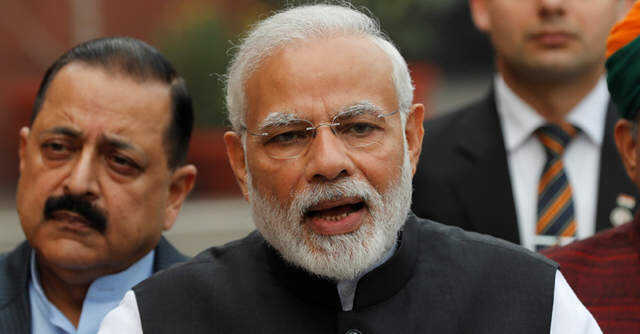
Ayushman Bharat goes digital: What are the challenges associated with electronic health records?


Prime Minister Narendra Modi on Monday rolled out the Ayushman Bharat Digital mission.
The ambitious project seeks to consolidate health records of citizens onto an online platform for wider use by the healthcare fraternity to analyse and recognise health scenarios. The government expects the data will help it offer better healthcare services.
In his tweet on Sunday, PM Modi termed September 27 as an “Important day for India’s healthcare sector.”

“It will ensure the security, confidentiality and privacy of health-related personal information. The Mission will enable access and exchange of longitudinal health records of citizens with their consent,” the statement from the Prime Minister’s office said.
Through the project, citizens will gain access to a health identity card which will also double up as an access card to their digital portal. Digital health records can be uploaded onto the platform with the help of this card.
The portal will consist of a Healthcare Professionals Registry, along with a facilities registry which will “act as a repository of all healthcare providers across both modern and traditional systems of medicine,” according to a statement.

What is the project trying to digitize?
The Ayushman Bharat Yojana, or Pradhan Mantri Jan Arogya Abhiyaan, or the National Health Protection Mission, tries to emulate a system similar to what former US president Barrack Obama introduced during his tenure. In fact, Ayushman Bharat is also called by some as Modicare. It was launched in September 2018 through which economically backward families would get free medical coverage of up to 5 lakh per year per family at any government or empanelled private hospital.
Now the digital push could be seen as a way by which the government looks to reach a wider audience, and provide more interoperability to the target audience.

The digital program was in its pilot phase in six union territories of India. Apart from ensuring ease of doing business for doctors and healthcare professionals, the government also plans an Ayushman Bharat Digital Mission Sandbox, through which private players can engage in testing of solutions/ products that will work together, or intends to utilise the platform.
"Citizens will only be a click away from accessing healthcare facilities,” the PMO said in a statement.
Is this India’s first health ID?

The Delhi and Tamil Nadu governments had already introduced digital health IDs for their residents, in line with the National Health Policy of 2017, whose aim was to digitize records and create a National Health Stack (NHS). For this, an action plan called the Digital Health Blueprint was created by the Ministry of Health and Family Welfare back then.
The health ID would provide for citizen’s interaction with healthcare professionals, and to receive digital lab reports, prescriptions and diagnoses from healthcare workers.
What are the challenges with providing such digital records?

The basic challenges are around ensuring the privacy of data and interoperability (the right exchange and use of information). While each state government having its own electronic health systems could prove useful, a final master system for the whole country will need better connectivity and much more advanced cloud infrastructure.
For this, experts suggest ensuring interoperability standards, while having the right tools and bandwidth to address issues such as links not working, data not being updated, and faster uploads for large file sizes such as X-ray’s, MRI scans etc.
Add to this, the personal data protection (PDP) bill is still under review in Parliament. The faster implementation of the PDP could ensure uniformity in usage laws, providing better protection of citizen’s data.

